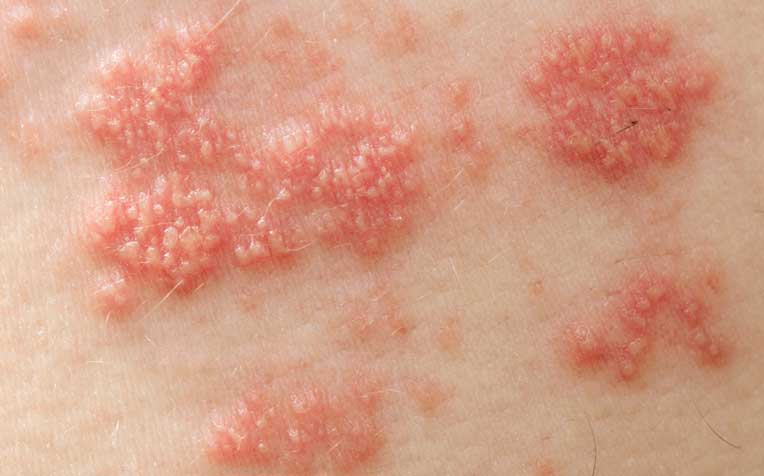
Shingles is a painful skin rash, usually with blisters.
If you have had chicken pox before, watch out for a red, blistering rash that might appear suddenly. It could mean that you're suffering from shingles or herpes zoster outbreak.
Dr Tan Kian Hian, Head and Senior Consultant and Director of the Pain Management Centre, Singapore General Hospital (SGH), a member of the SingHealth group, explains, "The chicken pox virus – or varicella zoster virus – can lie dormant in the nerves linked to the spinal cord for years. Then, when there is a dip in the immunity system, it erupts in a shingles outbreak."
So if you are undergoing steroid treatment, radiotherapy or chemotherapy, have a history of bone or lymphatic cancer or suffer from medical conditions like HIV/AIDS, you stand a higher chance of developing shingles since your immune system is compromised.
Other risk factors include being over 60 years old and being under high stress. There is no known food or environmental triggers.
Symptoms of shingles
Most shingles sufferers first notice the pain. "Usually, patients report a burning pain, tingling sensation and itching – like having ants crawling all over you. Even a tee-shirt brushing against the affected skin area can cause discomfort," says Dr Tan.
Next up, there will be more noticeable symptoms – a red rash that begins a few days after the pain, as well as fluid-filled blisters. Most commonly, these symptoms appear on one side of the body, usually at the level of the chest or abdomen.
Dr Tan adds, "Seek professional treatment once you notice symptoms like a rash and blisters, especially if they are accompanied by fever and body ache. You need to be treated within 72 hours to reduce the pain and prevent complications."
Is there a cure for shingles?
To date, there is no cure for shingles. But you don't have to suffer in silence.
"We cannot completely eliminate the virus from the body," explains Dr Tan. "But proper treatment will drastically reduce the severity of the pain."
Doctors usually prescribe anti-viral medications and strong painkillers, as well as calamine lotion and anti-itch medications to stop the itch.
Anti-depressants may also used to relieve the pain. Dr Tan adds, "These are actually not used to deal with emotional issues. Instead, they alleviate nerve-related pain by blocking the neurotransmitters."
Read on for more facts on shingles and some old-wives tales to treat the condition.
Ref: T12
Contributed by















 Get it on Google Play
Get it on Google Play